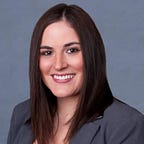What We Remember
Streamlining Focus For A Memorable Impact
As I reflect on this past year, a few core personal experiences and professional highlights have stuck with me. Asking what I’ve done this year, only a handful of activities and experiences instantly come to mind. However, as I scrolled through the camera reel in my phone, there were many more captured moments that caught me by surprise — memories that I had seemingly forgot had even happened. They were all important and special, so how could I so easily forget?
If you’re like me, don’t worry — there is nothing wrong with you! In fact, research shows that our brains are built to actively forget.
So if we are actively forgetting what is notable and personally intrinsic to us, imagine what this means for the things that matter less.
In the December 2022 issue of Entrepreneur magazine, Editor-in-Chief Jason Feifer talks about what people remember — “What if, no matter what, your audience will only remember one thing you said or did?” (I always look forward to his Editor’s Notes; in my opinion, it’s one of the best parts of the magazine.)
Seeing that our brains are wired to remember and to forget, Jason’s question is very real. What if we could only take away one thing from any experience or encounter? This goes for your friends, family members, partners, employees, colleagues, your boss, and even your customers. If you could only count on one thing to resonate from each conversation and each interaction, would that affect how you approach things?
This idea led me to reflect on how communities start and grow. As the Director of Community at Sora Schools, I spend a lot of time with our student and parent communities. Latching onto one idea that resonates and clicks is critical for the success of any community. It’s a driver of engagement — what makes a community sticky and what compels someone to care about being involved and acting on it. Look at popular social platforms like Instagram or TikTok. In part, they are designed to create engagement around a format of focusing on one thing at a time. Watch one video for 30 seconds or like one image before scrolling. Breaking retention into single shots for community members follows this pattern of resorting to one.
“The more we reduce the amount of information in an idea, the stickier it will be.”
Chip Heath, Author of Made to Stick: Why Some Ideas Survive and Others Die
I’ve been reading Think Again by Adam Grant for a book club, and coincidentally the section we are currently reading highlighted this same concept. In his book, Adam has a chapter dedicated to negotiation and the rethinking it requires to maximize interpersonal relationships. Through Adam’s research, he reveals that expert negotiators take a ‘quality over quantity’ approach to their arguments, meaning they tend to present the fewest reasons to support their case so they can avoid diluting their best points. The more issues presented, the more opportunities there are for others to find holes, especially in the weakest justifications. This runs the risk of affecting the credibility of entire case. Negotiation can be lost because of the weakness of the least compelling point, and it is easier for an audience to doubt a long laundry list of reasons.
Over the course of many years of education, from high school writing classes to graduate school, I’ve developed habits to gather as much information and evidence as possible to validate a point. If you and I were meeting, I have the tendency to plan and over-prepare for the project and will then share as much information as possible so you know where I’m coming from. But what if I didn’t do that? Could I be more effective simply focusing on the single most important aspect? Would that actually make for a more compelling presentation of my case?
Can the same logic be applied to how we approach the New Year? …to the growth we want to achieve? …to the legacy we hope to leave behind?
I normally am not one to make New Year’s resolutions. I believe in learning and growing as much and as often as you can, no matter what the calendar date. However, in the spirit of personal development, I do plan on taking this more focused outlook into the New Year with me. What is worth carrying with you into this year and focusing on? I’m curious how streamlining my approach to work might help me grow as an empathetic listener and a more concise communicator. And personally, instead of trying to have an overabundance of moments and experiences I can vividly remember over the year, I’ll focus on a single, larger outcome — like living more in the present moment — to drive a more recallable chain of memories.
Fast forward to next December, hopefully I won’t be reliant on the photos I’ve taken to remind me of what I’ve accomplished.
